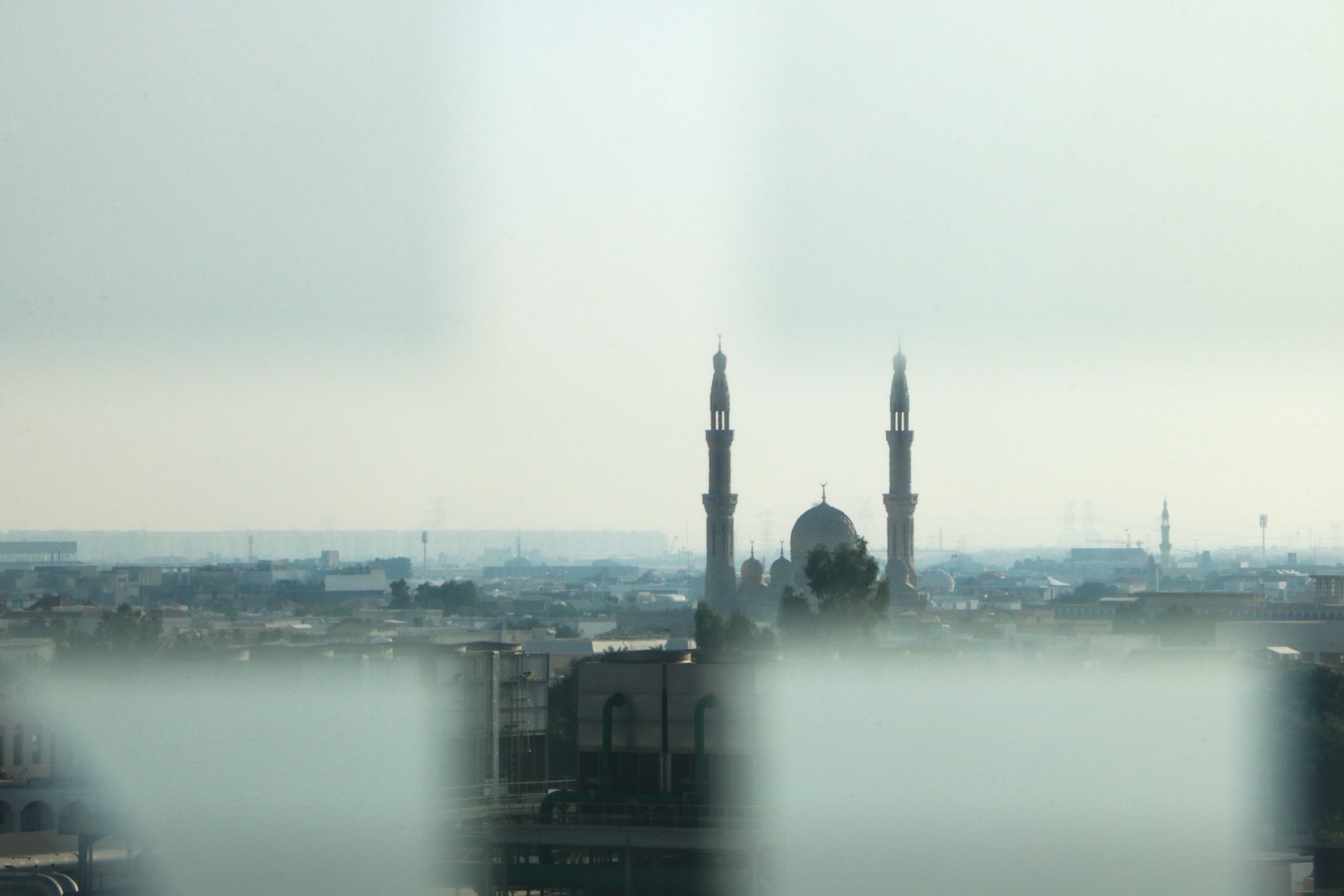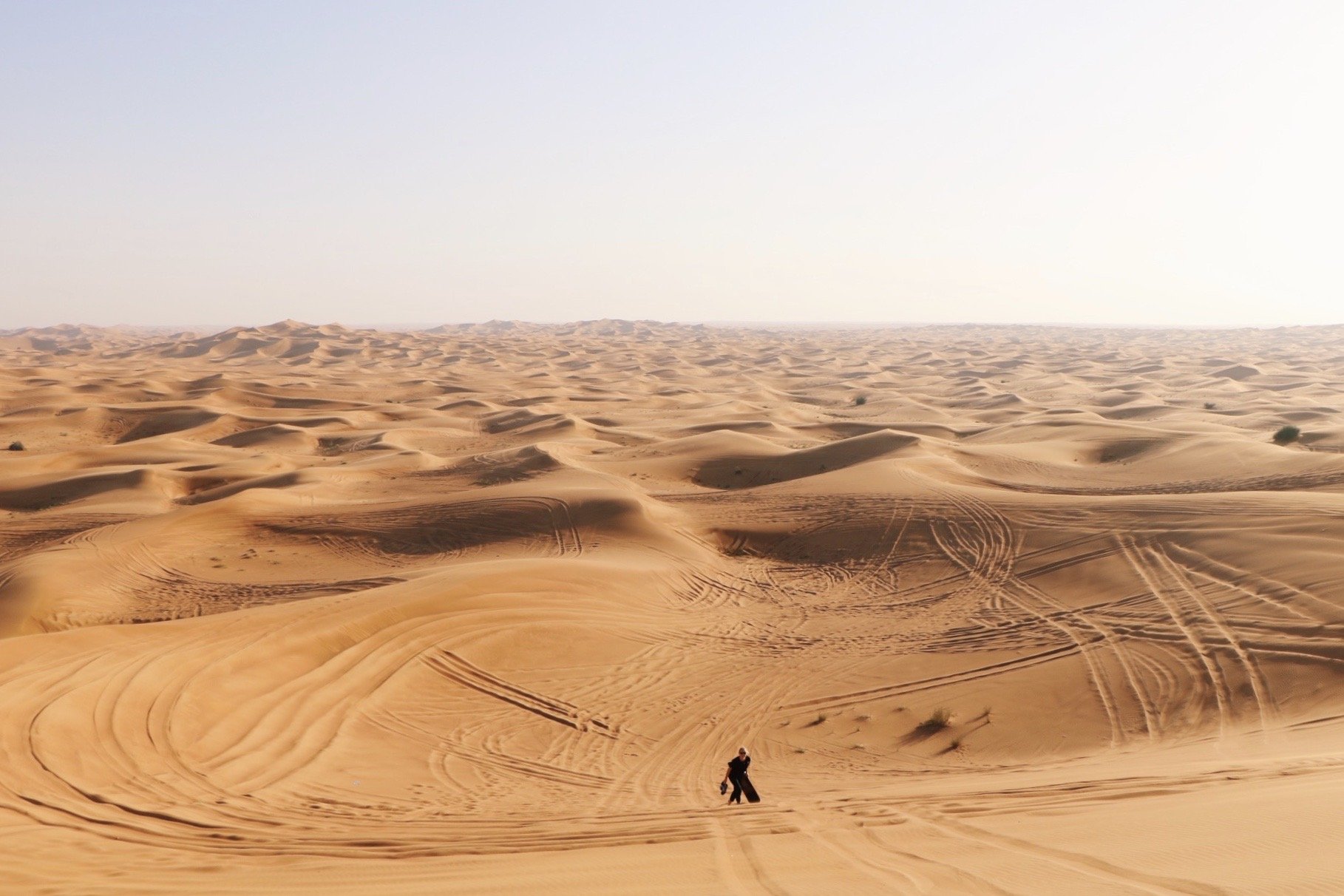The Politics of Travel
Photo by Abigail Mason
The excessive wealth and absurdity of Dubai’s luxury tourism industry has intrigued me for many years. In December, 2020, I finally had the chance to go and experience the culture for myself. For me, seeing the innovative architecture with my own eyes was enough to warrant a trip. The Burj Khalifa pierced the hazy sky like no building I had ever seen before. The glittering buildings were mesmerizing, and almost overwhelming in volume.
However, a thought lingered in my mind. Where do all the people who work in the tourism industry live? Where do the builders of these luxury skyscrapers live? The UAE has long been criticized for its use of slave labor in pursuit of their desired desert oasis. “Slavery presents itself primarily in the construction industry, enabled by the exploitation of immigrant construction workers,” says Nicholas Cooper in the Journal of Strategic Security. Exploitation is also prevalent in the Dubai sex trade, and “many of the wealthy elite manipulate immigration processes in order to keep immigrant women as their personal domestic servants…,” Cooper explains. According to the World Travel and Tourism Council, as of 2022, approximately 305,000 people work in the tourism industry in Abu Dhabi and Dubai. Where do they live?
One afternoon, I decided to venture out of the city and into the undeveloped desert. My guide spoke excitedly about all the new development that was taking place, expanding the already extensive limits of the city. As we journeyed further away from the downtown area, I began to notice small concrete apartment buildings tucked back along the side streets. The windows were tiny slits in the walls, with thick metal grates over them. Clothing hung from wires strung out across the thin balconies. It was a side of the city I had not yet seen, but I suspected there was much more, just hidden from my sight.
An important question is raised. Should their be an ethical consideration, on an individual level, when choosing where to travel? Dubai is a city that runs on tourism. It is meant to be a prime example of the innovation and success of the UAE. It portrays an image of luxury and wealth because that’s what the UAE values—despite the ethical costs. Tourism is seen as an opportunity to showcase what the government views as the best aspects of their country, and the UAE crafts and refines their global image through the experience of tourists in Dubai.
Tourism is a powerful industry, and many global governments recognize the influence that tourism can have on global opinions. For instance, “recently the Chinese government successfully put pressure on international airlines to stop referring to Taiwan as a country or face retaliation,” says Brendan Canavan in the Independent.
As a proponent of travel, I struggle with this idea. I recognize the influence that tourism can have on a regional level. This can be both negative and positive influence. The first step is recognising the failures and indiscretions of government. It is important to look beyond what is being communicated, to look beyond the desired image of a country’s government and what they portray to tourists. Tourism is political. It is an industry like any other. However, individuals can determine how to interact with this industry, which is ultimately what gives tourism its power.



